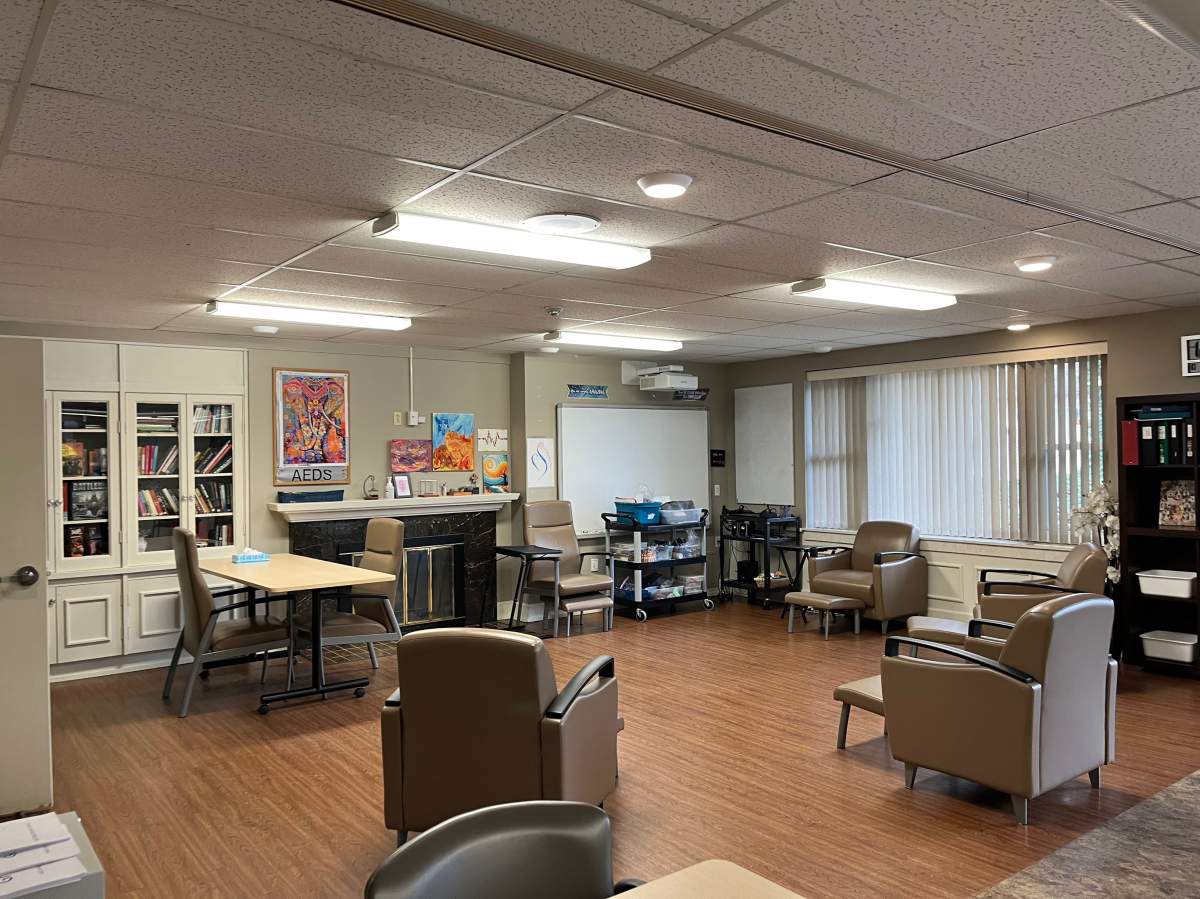More than 1,400 patients later, a London, Ont., clinic that’s the only of its kind in the province is celebrating 10 years of serving southwestern Ontario.

Belonging to the London Health Sciences Centre’s hospital network, the Adult Eating Disorders Service (AEDS) was developed in 2012 to overcome a lack of care available for those with anorexia nervosa, bulimia nervosa, binge eating disorder and other feeding or eating disorders.
It is the only clinic in Ontario that offers a 20-week residential program with 24-hour support for patients. Officials say the program often receives more than 300 referrals each year.
The clinic, which looks more like a communal living space rather than a medical facility, is equipped with bedrooms, a living room, a kitchen, a lounge and a patio, and has enough space to house up to eight residents.
Day treatment and outpatient services are also offered, along with virtual options that were developed amid the COVID-19 pandemic. The AEDS operates in partnership with the local branch of the Canadian Mental Health Association.
Jocelyn Rasmussen had dealt with an eating disorder since she was 10 years old, but it wasn’t until January 2019, when she was 62, that she sought help from the AEDS.

Get weekly health news
“I couldn’t keep food in my body, I was hungry all the time, I was desperate to figure out how to eat in a way to sustain my life. I just had hit bottom,” Rasmussen says of her time entering the clinic.
“The program gave me a kind of wellness, in terms of my relationship with my body and sustaining it, that I never had in my whole life.”
Rasmussen praises the program for how it tailored treatment to uniquely suit each patient, while also allowing patients to “be honest and allowed to push back.”
“I think that’s something you get in this therapeutic situation … that helped me, I think, to really get well, because I could overcome the resistances. I stopped hiding.”
The former patient says she now feels an obligation to share the message about AEDS for those walking in the shoes she once wore.
“It’s never enough to just have it for yourself.”
Elizabeth Phoenix, a nurse practitioner, is proud to have been with the AEDS since it first opened.
“It was really enticing to have this opportunity to develop a program from the ground up, but also to make it innovative, to make it community-based, to make it research-based and I’m really delighted to say 10 years later, we really brought all those things to fruition,” Phoenix said.
Phoenix looks to 2016 as the year the service really took off. That’s when AEDS moved to its current location at 54 Riverview Ave.
Up until then, the clinic was only able to offer intensive treatment services that required major time commitments from patients.
“Most people really don’t want to put their lives on hold … so when we were able to offer, in 2016, outpatient individual treatment, that really opened things up,” Phoenix added.
AEDS has plans to expand even further and is working on a 10-week residential condensed treatment program that aims to reduce wait-lists by cutting the length of treatment in half.
There’s no better time for the clinic to widen its reach, as Phoenix notes the AEDS has seen a surge in referrals over the pandemic.
The nurse practitioner blames it in part on the degree of isolation people experienced during the pandemic.
“They had more time on their hands and when we have more time on our hands, we start thinking of ways to fill it, and so people start doing things like thinking about their health or thinking about their eating or thinking about their weight,” Phoenix said.
“For the vulnerable, that makes them really at risk for developing eating disorders.”

If you or a loved one is suffering from disordered eating, the National Eating Disorder Information Centre offers an online chat and toll-free helpline (1-866-633-4220) to help connect people with support.














Comments